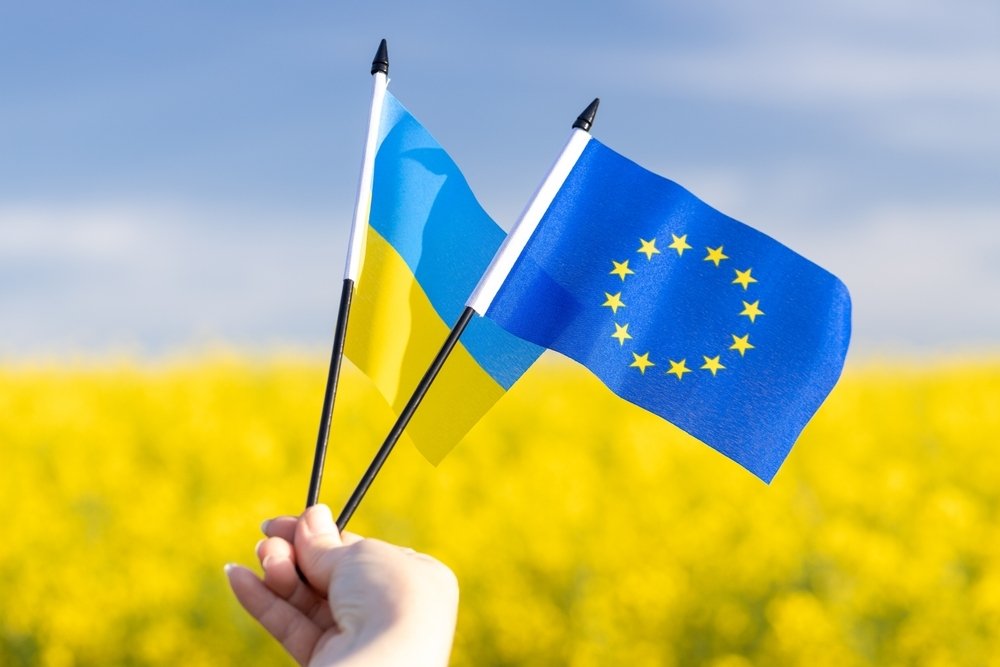Portugal Backs Negotiations on Ukraine’s Accession to EU
KEY TAKEAWAYS
- Portugal's Prime Minister, Antonio Costa, affirmed the country's support for Ukraine's European Union membership,
- Portugal’s position aligns with the European Commission's recommendation to initiate accession negotiations.
- Costa emphasised the importance of merit-based enlargement and stressed that the process should consider the candidacies of Western Balkan countries, reflecting his recent visits to Albania, North Macedonia, and Montenegro.
Portugal has expressed support for Ukraine’s membership in the European Union.
Prime Minister of Portugal, Antonio Costa, has said that Lisbon follows the position of the European Commission, which recommends the opening of negotiations for the accession of Ukraine to the bloc.
Portugal’s position is quite clear. All enlargement processes must be based on merit and in accordance with the assessment made by the Commission. If the European Commission understands that it should take a new step towards opening negotiations with Ukraine, Portugal follows the European Commission and will support it.
Antonio Costa
Portugal’s Prime Minister emphasised that this process should not occur in isolation. He considered it impossible to disconnect the EU enlargement process from Ukraine without considering the Western Balkan countries’ candidacies. Costa mentioned his recent visits to Albania, Montenegro and North Macedonia.
Regarding awnings, we understand that it is necessary and possible to take steps forward with a view to the enlargement process.
António Costa
He expressed his hopes that the European Council meeting would result in an unequivocal commitment from the EU to the expectations it has created for Ukraine and the Western Balkan states.
In November this year, the European Commission recommended opening EU membership negotiations with Ukraine while stressing that Kyiv has met all the needed conditions for EU membership.
We’ve adopted our 2023 Enlargement Package recommending open negotiations with Ukraine and Moldova, granting candidate status to Georgia, and opening accession negotiations with Bosnia-Herzegovina once the necessary degree of compliance is achieved.
European Commission
The proposal will be discussed this week at the Brussels summit by the EU’s heads of government.
However, Hungary opposed Ukraine’s accession to the bloc. Last month, Hungary’s Minister of Foreign Affairs and Trade, Péter Szijjártó, said that Ukraine’s accession to the EU would bring war to the bloc.
Responding to the European Commission’s new enlargement package, the Minister noted that the analysis was correct in concluding that Ukraine failed to meet the requirements for EU candidate status, emphasizing its violations of national minority rights.
Unlike Hungary, a recent poll of six EU member countries for the European Council on Foreign Relations (ECFR) revealed that there had been considerable support for Ukraine’s candidacies.
The poll revealed that Ukraine’s accession to the EU has the most significant support in Denmark, with 50 per cent of participants in the poll supporting Ukraine’s accession to the EU.
Poland shows 47 per cent in favor of Ukraine’s membership in the EU. Romania exhibits divided opinions, with 32 per cent for and 29 per cent against Ukraine’s accession.
In Germany, 37 per cent of respondents back Ukraine’s accession to the bloc, while 39 per cent are against it. France shows 29 per cent support for Ukraine’s EU accession, while 35 per cent are against this process. In Austria, 52 per cent of participants opposed Ukraine’s accession to the EU.

